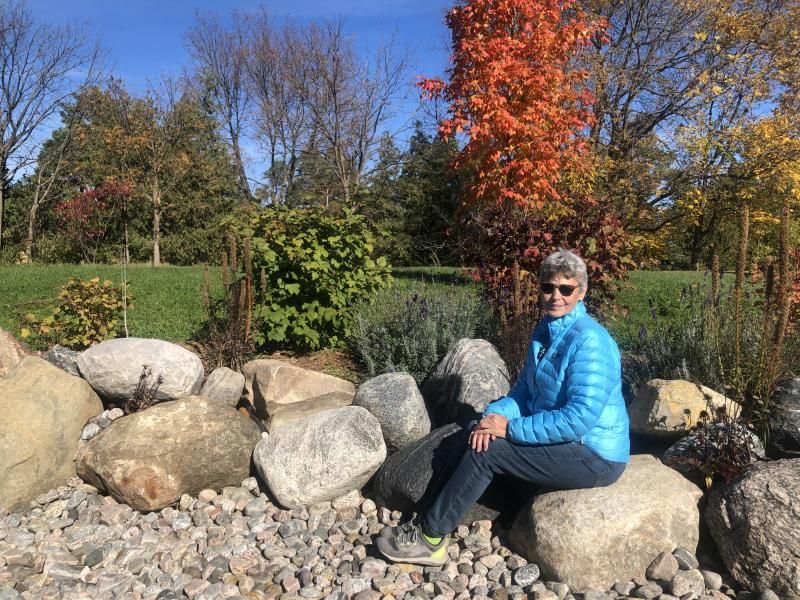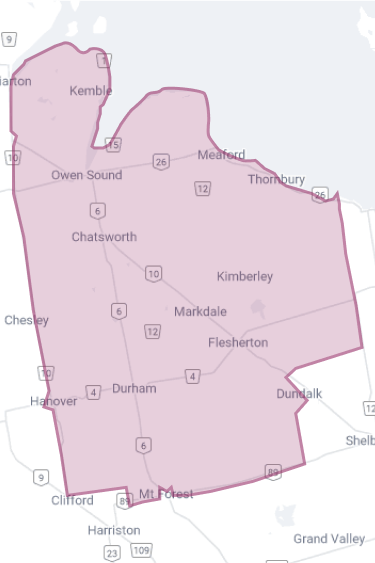Backyard Biodiversity

Thornbury resident Alison Findley is transforming her backyard into a biodiversity oasis with a diverse selection of native pollinator plants to help create habitat and provide food for the birds and the bees.
Tell us about your yard and driveway.
I had a vision to plant some clover. I heard that clover is good for [pollinators]. It's low maintenance. You don't have to water it as much as a lawn. You can fertilize it now and again and you can go away and not worry about it. And you know the birds and the bees are happy.
Also, I had decided a long time ago to get gravel so the water can just flow right through and soak into the ground instead of flowing down the street into our storm sewers.
What inspired you to add native pollinators to your yard?
A few years ago, I learned about the plight of the monarch butterflies and I started to take notice of plant material, native plant material. I watched the monarchs, and even raised them myself, and let the milkweed grow up. Then I really realized how important native plants are, not just to the birds, but bees, insects, and under the earth as well.
What advice would you give to others?
- Getting a good triple mix and topsoil is really important to start.
- I don't put my garden to bed in the fall because a lot of these things produce seeds that birds want to eat during the winter.
- Just do a little bit of research and, you know, don't get discouraged.
- Things do take time to establish themselves. It's a work in progress. There's lots of things I'd like to add in in the coming years and we just take our time and enjoy what we're doing.
Take Action
Volunteer with a community tree planting project through Neighbourwoods North or The Sustainability Project, or start incorporating native pollinator plants and trees to your yard!
Looking for native plants? Check out Inglis Falls Arboretum & Nursery, a non-profit, volunteer run nursery in Owen Sound, or explore the Sustainability Asset Map to find other local suppliers near you.



